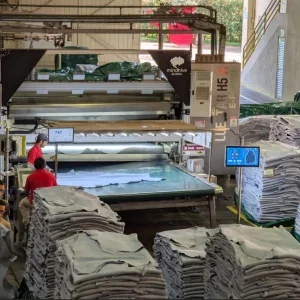The speakers at the event also called for establishing a knowledge and innovation lab for the leather industry, in order to diversify and manufacture high-end products in line with ever-changing demand of the global market.
Solidaridad Asia General Manager (Pollution Management in MSMEs) Tatheer Zaidi presented a keynote on 'Issues/challenges prevailing in the export-oriented leather industry of Bangladesh' at the event, presided over by Solidaridad Bangladesh Country Manager Selim Reza Hasan.
Suggesting five points for sustainability of the leather industry, APEX Footwear Ltd Managing Director Syed Nasim Manzur said technical experts from the Netherlands, having proven industry experience in effluent management and treatment, should be identified and selected for better waste management in the country's leather industry.
"We don't have such expertise in the country; we have professors with academic knowledge and bureaucrats who don't have necessary technical skills. So, we need people with specific knowledge to run effluent treatment plants," he said.
Second, with the help of Solidaridad, Bangladesh needs to engage in campaigns both locally and globally for better marketing of the leather industry, he said, adding: "We are hopeless at marketing ourselves while there are countries with much worse pollution standards than us but they get away with better marketing."
Putting emphasis on formulating culturally sensitive global standards for the leather industry, Mr Manzur said it was not possible for Bangladeshi workers to wear personal protective equipment (PPE) like the workers in Germany or other European countries, as temperature and humidity inside the factory shed were much higher here.
Besides, the Leather Working Group (LWG) certification for the leather industry is just one standard while there are some other standards now in which Bangladesh can show its progress, he added.
Bangladesh exports about 50 types of leather and leather goods to nearly 80 countries and regions to fetch about US$1.0 billion that has made the sector 2nd largest foreign currency earner. The country is the 8th largest producer of footwear with over $3.0 billion worth of domestic market for leather products, he said, adding that there were about 134 tanneries operational in the country employing over 200,000 people directly and around 850,000 indirectly. Meanwhile, Bangladesh Tanners Association (BTA) Chairman Shaheen Ahamed said it had been a challenge to carry out solid waste management at Savar Tannery Industrial Estate due to non-availability of a dumping station. The estate produces around 70 tonnes of solid waste per day which needs to be managed in an environment-friendly way to improve the image of the industry, he said.






